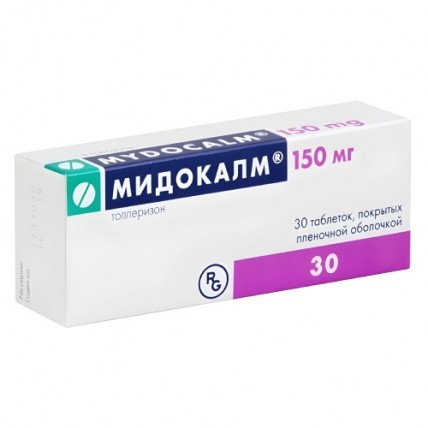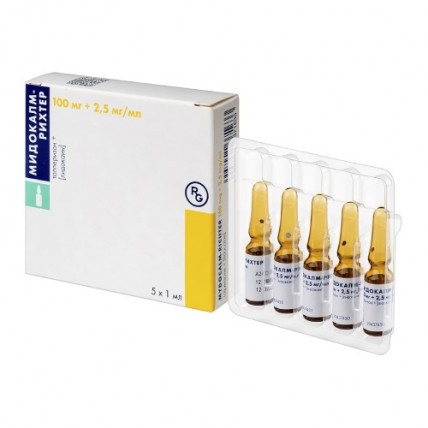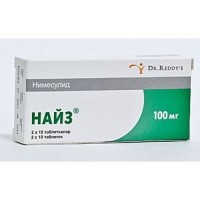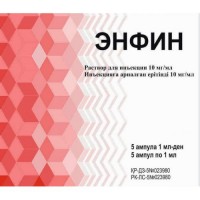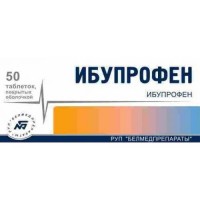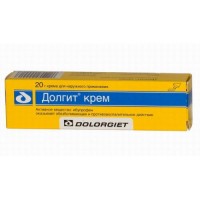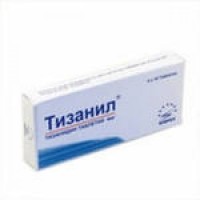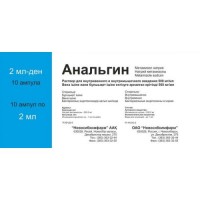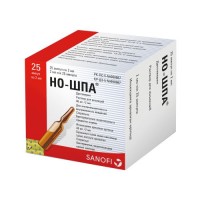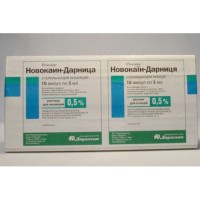MYDOCALM® (Tolperisone) Tablets and Injections
- $18.00
What is Mydocalm®?
Mydocalm® is a medication primarily used to relax muscles, containing Tolperisone as its active ingredient.
Available in 150 mg film-coated tablets and as an injectable solution, it helps manage muscle spasticity and cramps, which are common after neurological conditions such as strokes.
Mydocalm® is a centrally acting muscle relaxant, which means it works through the central nervous system, decreasing muscle rigidity and improving flexibility.
Unlike many other muscle relaxants, it does not have a strong sedative effect, allowing users to maintain their day-to-day activities without feeling overly drowsy.
How Does Mydocalm® Work?
Mydocalm® belongs to the pharmacotherapeutic group of centrally acting muscle relaxants. It functions by acting on nerve pathways to reduce excessive muscle tone, which helps in relaxing muscles and alleviating discomfort caused by spasticity. It is often prescribed for post-stroke patients to enhance motor recovery by reducing muscle tension. Unlike some other muscle relaxants that often cause fatigue or drowsiness, Mydocalm® generally has minimal sedative effects, making it more practical for daily use without significantly impairing the patient's alertness.
When Should Mydocalm® Be Used?
Mydocalm® is commonly used for the following conditions:
- Symptomatic Treatment of Spasticity: This refers to reducing muscle stiffness or spasms that typically occur in neurological conditions, such as spasticity in adults post-stroke.
- Muscle Spasm Relief in Musculoskeletal Disorders: It can also be beneficial for managing muscle spasms and pain in various musculoskeletal disorders like dorsopathies (a group of diseases affecting the spine and back muscles). Its ability to help alleviate pain and muscle stiffness makes it useful in conditions where muscle spasm is a significant symptom.
Who Should Avoid Using Mydocalm®?
There are several contraindications for the use of Mydocalm®, including:
- Allergies to Tolperisone or Lidocaine: If you are allergic to Tolperisone, Lidocaine, or any similar substances, this medication should not be used. Reactions could range from skin rashes to severe systemic allergic responses.
- Myasthenia Gravis: This is a condition characterized by severe muscle weakness. Since Tolperisone affects neuromuscular transmission, its use is contraindicated in individuals with myasthenia gravis, as it could potentially worsen their symptoms.
- Lactose Intolerance and Related Disorders: The tablets contain lactose monohydrate, meaning patients with lactose intolerance, galactosemia, or glucose-galactose malabsorption syndrome should avoid this medication, as they may experience adverse gastrointestinal effects.
- Pregnancy and Breastfeeding: Mydocalm® is not recommended during pregnancy—especially in the first trimester—due to a lack of sufficient safety data on its effects on fetal development. It should also be avoided during breastfeeding as it is unknown whether Tolperisone is excreted in human milk.
- Children and Adolescents: Mydocalm® is not recommended for individuals under the age of 18 due to the lack of sufficient research regarding safety and efficacy in this age group.
What Precautions Should You Take Before Using Mydocalm®?
Before starting treatment with Mydocalm®, consider the following precautions:
- Hypersensitivity Concerns: Individuals with a history of allergies or hypersensitivity reactions to medications should be cautious. This is particularly relevant for people who are allergic to Lidocaine or who have experienced allergic reactions to other medications, as they may have an increased risk of allergic responses when using Mydocalm®.
- Liver and Kidney Function: Patients with liver or kidney impairment require careful monitoring and possibly adjusted dosages to reduce the risk of adverse effects. For those with moderate liver or kidney dysfunction, dose adjustments based on individual response and close monitoring of organ function are advised, whereas those with severe impairment should avoid using Mydocalm®.
What are the Possible Interactions with Other Medications?
Mydocalm® may interact with other medications, especially those metabolized through the CYP2D6 enzyme, which is part of the body's liver metabolism pathway. Some drugs that may interact include:
- Antidepressants such as Venlafaxine or Atomoxetine may have increased blood concentrations if taken alongside Mydocalm®, potentially leading to intensified side effects.
- Antipsychotics like Thioridazine and Perphenazine can also interact with Tolperisone, requiring dose adjustments.
- Beta-Blockers like Metoprolol and Nebivolol: Co-administration might lead to increased drug levels of beta-blockers, requiring careful monitoring.
- Muscle Relaxants: When used together with other centrally acting muscle relaxants, there is a risk of additive effects, which might necessitate reducing the Mydocalm® dosage.
- NSAIDs: Tolperisone can enhance the effect of non-steroidal anti-inflammatory drugs (NSAIDs) such as Niflumic acid. Thus, if taken together, it might be necessary to lower the dose of NSAIDs to avoid excessive side effects like gastrointestinal issues.
How Should Mydocalm® Be Taken?
- Dosage for Adults: The recommended daily dosage is between 150 mg and 450 mg, divided into three doses. The exact dose depends on the severity of symptoms and individual tolerance to the medication. The gradual titration approach helps minimize any potential side effects.
- Administration Instructions: Mydocalm® should be taken after meals with a full glass of water. Taking it after food ensures better absorption since the bioavailability of Tolperisone decreases when taken on an empty stomach, leading to reduced effectiveness.
What Should You Do in Case of Overdose?
In the event of an overdose, symptoms might include drowsiness, nausea, vomiting, abdominal pain, and possibly respiratory issues or seizures in severe cases. As no specific antidote exists for Tolperisone, overdose management is primarily symptomatic, focusing on supportive care to manage the symptoms until they subside.
What are the Common Side Effects of Mydocalm®?
Mydocalm® is generally well tolerated, but some side effects may occur:
- Common Side Effects (affecting 1 in 10 to 1 in 100 patients) include:
- Gastrointestinal Issues: Symptoms such as nausea, vomiting, dry mouth, or abdominal discomfort are possible.
- Central Nervous System Effects: Headaches, dizziness, and sleep disturbances have been reported, although these tend to be less severe compared to other muscle relaxants.
- Muscle Weakness and Fatigue: Mild muscle weakness, fatigue, or general tiredness can also be experienced.
- Rare Side Effects (affecting 1 in 1,000 patients) include:
- Allergic Reactions: Ranging from mild rashes and itching to more severe conditions such as angioedema or anaphylactic shock. It is crucial to stop the medication immediately and seek medical attention if any allergic symptoms appear.
- Cardiovascular Issues: Rarely, symptoms such as tachycardia (increased heart rate) or hypotension (low blood pressure) can occur.
How Should Mydocalm® Be Stored?
- Tablets: Store at a temperature not exceeding 30°C (86°F), in a dry place away from direct sunlight. Keep it out of reach of children.
- Injection: The injectable solution should be stored between 8°C and 15°C (46°F to 59°F). The packaging should protect the product from light to preserve its effectiveness.
Can Mydocalm® Affect Your Ability to Drive?
Mydocalm® typically has a low risk of sedation, meaning it should not significantly affect the ability to drive or operate machinery. However, some patients may experience drowsiness, dizziness, or blurred vision as side effects. If these occur, it is advisable to avoid such activities until they subside.
What Should You Know About Mydocalm® Injections?
Mydocalm® Injections are available for patients requiring more immediate relief or when oral administration is not feasible. Each 1 ml ampule contains Tolperisone hydrochloride (100 mg) and Lidocaine hydrochloride (2.5 mg). This form is used for intramuscular administration and should be administered by healthcare professionals only. The injection provides a quicker onset of action, which can be beneficial in acute spasm conditions.
Composition of Mydocalm® Tablets and Injections
Mydocalm® Tablets contain:
- Active Ingredient:
- Tolperisone Hydrochloride (150 mg) per tablet.
- Inactive Ingredients:
- Citric Acid Monohydrate: Used as a pH regulator.
- Colloidal Silicon Dioxide: Acts as an anti-caking agent.
- Stearic Acid and Talc: Common excipients that serve as lubricants.
- Microcrystalline Cellulose: Used to form tablets.
- Corn Starch and Lactose Monohydrate: These serve as fillers to give the tablet its shape.
Film Coating Composition:
- Colloidal Silicon Dioxide, Titanium Dioxide (E 171), Lactose Monohydrate, Macrogol 6000, Hypromellose: These ingredients help create the tablet's coating, making it easier to swallow and providing a protective barrier.
Mydocalm® Injections contain:
- Active Ingredients:
- Tolperisone Hydrochloride (100 mg)
- Lidocaine Hydrochloride (2.5 mg), which helps reduce injection site pain.
- Inactive Ingredients include Methylparahydroxybenzoate, Diethylene glycol monoethyl ether, and others for pH adjustment and to stabilize the formulation.
What Should You Do If You Experience Side Effects?
If any side effects occur, especially signs of hypersensitivity such as difficulty breathing, swelling of the face, lips, or throat, stop the medication immediately and seek urgent medical help.
Always discuss any side effects with your healthcare provider to determine if continuing treatment is appropriate or if any adjustments are needed.
